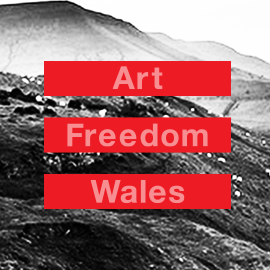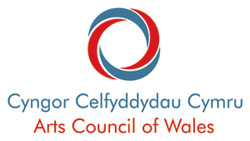3 Oct 2014 | Europe and Central Asia, News and features, United Kingdom

(Photo: Banksy.co.uk
There’s a grand tradition of satire and mocking the great, the good and the very ordinary in Britain. From Swift’s Modest Proposal to Not the Nine O’Clock News, and from TV’s stunning Spitting Image to the magnificent everyday newspaper cartoons by masters such as Martin Rowson and The Independent’s own Dave Brown.
So as a nation that has grown up on a diet of cartoons and caricatures seen over our morning boiled eggs why should we worry about Banksy taking artistic aim at the current debate on immigration, and poking fun at it in a mural on a seaside town’s walls? Well we shouldn’t, of course, because we have grown up on that very same diet of mocking and magnifying debates using caustic comedy, and Banksy’s murals are just modern manifestations of that.
In his mural are some grey pigeons, carrying placards, and down there we have a colourful exotic bird, clearly one that has migrated here, possibly for the summer, and the grey ones are not keen. One of the grey birds holds a sign saying: “Go back to Africa” and another holds “Keep off our worms”.
Here, in the mural, are some of things people say about immigration on the streets of Clacton, and on the streets of other towns or cities. And what this mural is showing are some of those ordinary views. To me what it is suggesting is: “What next? Are we going to stop birds migrating here for the summer?” Anyway, whether you think it is funny or not, you surely can’t deny that it is magnifying some of the debates we are having about immigration in these past few months, and no doubt in the next six as we approach the general election, and locally in Clacton-on-Sea, in its upcoming by-election.
Swift suggested the Irish should eat their babies; Spitting Image had members of the cabinet spitting out vegetables. This is taking an idea or discussion that is in the public arena and magnifying it, sometime to outrageous proportions, to poke fun and to stir up debate over the cornflakes, and to make people think a bit harder.
Caricature has historically been able to point fingers, and make fun and spike discussion in ways that editorials in newspapers don’t reach; a sort of Heineken effect.
Tendring District Council has explained that it has a rapid reaction force on seafront graffiti, and when just one person complained and found the language racist, its anti-grafitti team was dispatched, agreed with that the language could be seen that way, and acted within “their remit” to get rid of it. Their spokesman said the team did not have to consult and no one knew this was a Banksy. Apparently it would be fine if Banksy wanted to come back and do something else though.
Sadly, all it takes one person to think something is racist, and we paint over a great bit of current commentary on intolerance, even though as lawyer Tamsin Allen outlines “political speech is given higher protection by the European court during an election period than at other times”. The British have a long and glorious history of satire and humour. And we should never feel the need to paint over things that challenge our views. Challenge and debate make us stronger, and we should grasp that freedom to debate as hard as we possibly can.
A version of this article was originally posted on 2 October on Independent Voices
3 Oct 2014 | Campaigns, Statements
The European Court of Human Rights (ECHR) has proved itself a vital last line of defence in protecting free speech in the UK, not least in defending a free press.
It was the European Court that ruled Britain had acted unlawfully in gagging newspapers over Spycatcher, it was the European Court that ruled in favour of a journalist punished by the UK courts for refusing to reveal a source, and it is the court in which UK legislation on mass surveillance is currently being challenged to ensure continued protection for journalists‚ and their sources.
Under extensive plans mooted by the UK’s Conservative Party, to be introduced if it won the next election, it claimed ECHR judgements would only be advisory, rather than binding. Final rulings instead would be made by the London-based Supreme Court. The party also pledged to write a new British Bill of Rights, which would reduce or qualify existing rights. They have also suggested the UK government would withdraw from the European Convention if parliament and the British courts did not have the power to overrule ECHR judgements.
Index believes that any UK government that attempts to undermine the ECHR would provide countries with appalling human right records a ready-made excuse to ignore the internationally recognised standards that the court represents.
3 Oct 2014 | Bahrain, Bahrain Statements, Middle East and North Africa, News and features

Nabeel Rajab during a protest in London in September (Photo: Milana Knezevic)
Nabeel Rajab, a prominent Bahraini human rights activist and Index award winner, has been detained for seven days while being investigated for claims that he offended the Ministry of Interior over Twitter.
Index CEO Jodie Ginsberg said: “Index is deeply concerned that the UK government has done little to press Bahrain to improve its human rights record. Instead the UK talks repeatedly of improvements in the human rights system in Bahrain when it is clear that rights such as freedom of expression are not being respected.” Index is writing to UK MPs to raise the case of Rajab.
On 1 October, Rajab, president of the Bahrain Centre for Human Rights (BCHR) and director of the Gulf Centre for Human Right (GCHR), was summoned by the cyber crimes unit of the Criminal Investigation Directorate. He is alleged to have “denigrated government institutions” on Twitter, according to the Ministry of Interior. Rajab was released in May after two years in prison on charges including making offensive tweets and taking part in illegal protests.
Rajab “has been targeted with repeated arrest and detention because of his work in the field of human rights” and “the government’s aim is to hinder his advocacy work both inside and outside of Bahrain”, said BCHR, Americans for Democracy and Human Rights in Bahrain (ADHRB) and the Bahrain Institute for Rights and Democracy (BIRD).
The arrest came shortly after Rajab’s return to Bahrain following an international trip to raise awareness of human rights violations in his country. He was calling for the release of human rights activists — and father and daughter — Maryam and Abdulhadi Al-Khawaja. Maryam has since been released on bail, her travel ban lifted and trial postponed until 5 November. Abdulhadi continues to serve the life sentence handed down to him in 2011, after playing a prominent role in the country’s pro-democracy protests that year.
While in London, Rajab told Index about the human rights and free speech situation in Bahrain, saying that “at least 50,000 people” had been in and out of jail in the past three months alone, “just for practising their right to freedom of assembly, freedom of gathering, freedom of expression”.
“It is time for Bahrain’s rulers to stop harassing human rights defenders and silencing free speech, and live up to their international obligations – including those they pledged again to uphold as part of the UN Universal Periodic Review just last month. Please, let our colleagues go free. Free Nabeel Rajab and drop the charges facing Rajab and the Al-Khawajas, ” GCHR said in a statement.
Correction 10:30, 3 October: Due to a typo, an earlier version of this article used the number “50,0000” instead of “50,000”.
This article was posted on 2 October 2014 at indexoncensorship.org
3 Oct 2014 | Events
 Index on Censorship is delighted to announce the third in a series of online conversations about artistic freedom of expression in Wales.
Index on Censorship is delighted to announce the third in a series of online conversations about artistic freedom of expression in Wales.
This conversation forms part of our ArtFreedomWales programme looking at how artistic freedom is regarded, debated and promoted across the arts sector in Wales – in the press, by artists, by the public, by funders and policy makers.
Young Artists in Wales – opportunities and obstacles to expression?
Online conversation with:
- Chelsey Gillard – Critic
- Sian Rowlands – Dancer
- Elgan Rhys – Actor & Writer
- Cerian Wilshere-Davies – Mess up the Mess Youth Theatre Group
- Melody Patry – Senior Advocacy Officer, Index on Censorship
When: November 3rd 14.00
Where: Take part in the Google Hangout here
What are the issues in Wales? What are the opportunities? What are the obstacles? What has the right to freedom of expression got to do with Wales’ major cultural debates and policies: bi-lingualism, engaging young people and ethnically diverse voices, tackling poverty, maximising on new cultural infrastructure, having an international voice?
We want to hear from everyone producing and participating in the arts in Wales who has something to say about freedom of expression. You will be able to email and tweet questions to the panel during the discussion.
This is the third of four events on artistic freedom of expression in Wales that we are live-streaming, leading up to a national symposium – a Free Speech Hearing for Wales – at Chapter Arts Centre in Cardiff (27th November).
The first online conversation featuring leading artists from across Wales and the second online hangout which took place in Welsh are both available to watch here.

Arts Council of Wales supports this programme




